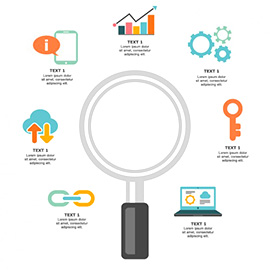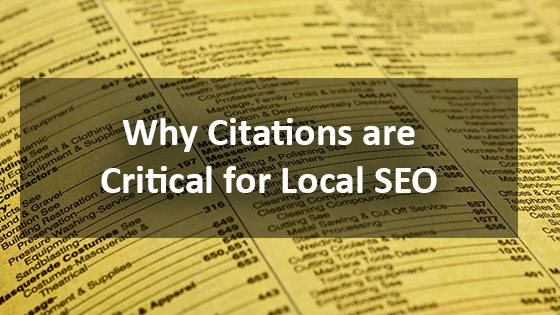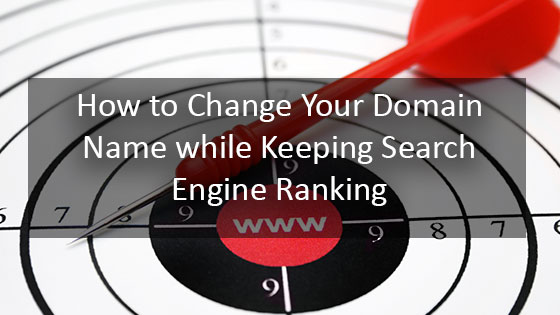With so many metrics out there to measure the potential success of a website, it can be a little overwhelming. And we know there’s really only one metric that matters to most businesses at the end of the day: How many customers and how much money did my website bring in?
But Domain Authority is a vital metric, both in the digital world and in the real world. In fact, your domain authority may well correlate to how well your business is doing in real life. So just give us five minutes of your time to explain this important metric and how to apply it to your website and company to achieve more conversions — more customers.
And I’ll try hard to make it simple and interesting. Deal?
What is Domain Authority?
Domain authority is a metric developed by Moz to measure how likely a website is to rank higher or lower in search engines compared to other websites. Checking your site’s domain authority against your competition is a good way to see if your SEO strategies, content development, and link building efforts are paying off.
Domain Authority is measured on a scale of 1 to 100, which 100 being the best. Moz created a logarithmic algorithm — which is a fancy way of saying the lower your domain authority (DA) is, the easier it is to raise it. However, sites with a very high DA will have a harder time increasing their score.
Where Can You Measure Domain Authority?
Before we continue, go ahead and test your site’s domain authority on MozBar, Moz’s free SEO toolbar. Just be sure to come right back so we can explain what it means and how to improve it! We’ll wait.
So, what was your score?
According to Moz, any domain authority over 60 ranks as excellent. Between 40 and 50 is average. Anything less than 40 is below average. However, many, many sites rank below 40, especially if they have not been managed by SEO and Digital Marketing Specialists.
So, how do we improve your domain authority?
What Factors Affect Domain Authority of a Site?
Moz measures your DA based on a number of factors, but the most important seem to be Age, Popularity, and Size of your website.
As with Google’s ranking factors, there’s no way to know all of the elements of Moz’s system. However, we do know that Moz, which offers a link building and directory listing service itself, values the interconnected world of digital networking through link building.
A quick metaphor to help you visualize link building: Imagine a big city like New York compared to a smaller town like Dunn, North Carolina. Which city has more roads leading into it? Which city has more roads leading from it? Which city has more people living in it?
Part of how Moz (and Google) rank the value of a site is by the number of links going into and out of your site. More links mean more traffic, just like more roads mean more traffic. When a city has a lot of roads going into it, you know a lot of people consider places and information in that city valuable enough to build another road to get there.
And believe it or not, the number of links pointing back to your site can directly relate to how many connections your business is building in the real world. I’ll explain in a minute.
There are four major things to consider when it comes to building your domain authority through link building:
1. Developing a strong internal linking system
2. Providing quality content with links to authoritative external sources
3. Obtaining authoritative back links to your own site
4. Building your site into local business directories
One of the best ways to build up your site’s domain authority is to develop unique, quality, SEO-rich content. When you create amazing and valuable content, people will link to it through their social media and other sites will link to yours as a resource. This link building is critical for increasing your domain authority — specifically, earning backlinks from other authoritative sites.
Examples of Authoritative Sites:
- Moz
- Search Engine Land
- Wikipedia
- Huffington Post
- Education Sites and Universities (.edu)
- Government Sites (.gov)
How Do I Build Authoritative Back Links?
As I stated above, developing incredible, powerful, and useful content is a great start to increasing your Domain Authority. If your content comes across as authoritative in your field, it’s far more likely to be picked up by true authoritative sites with high domain authority.
“To get a link, give a link.” – A really wise woman.
I’m not talking about the black hat SEO practice of “link trading circles,” which can be punished by Google. I’m talking utilizing the internet the way it’s meant to be used: As a social network. Just like in school, quality content links to quality sources. What kind of article would this be, for example, if I didn’t link to industry authorities like HubSpot or Moz as sources?
And as we link to those authoritative sources, we can share our articles with them on social media, building a relationship with other like-minded companies in our industry. Slowly, but surely, those digital relationships can create a real-world impact on your business.
Similarly, if your law office donates a float to the Raleigh Labor Day Parade, you should ask if the Raleigh Parks & Recreation website will provide a link to your website from theirs. Likewise, you can write a blog about the experience on your own site, sharing photos and thoughts from the parade, and link back to them. The parade provided two benefits: Hands-on traditional marketing through community exposure, but also digital marketing through a back link relationship. Not only is your .gov backlink from an authoritative site, but it also shows Google your Raleigh company is linked in with other major Raleigh events, which will boost your rankings next time someone searches for a Raleigh lawyer.
Moz Emphasizes Building Links in Local Directories
Moz itself offers a link building and directory-listing tool, so you know they value links. Just like your company website should be aspiring towards links from authoritative sites, you should also take the time–or hire a professional Digital Marketing professional–to build your site into local directories.
Directories include sites like:
- YP
- White Pages
- Angie’s List
- Merchant Circle
- Bing
- Google My Business
- Manta
- CitySearch
For free, from me to you, just to get you started, here are 50 more!
If that sounds boring, you can hire us to do it for you.
For that, matter, you should also build a Facebook, Twitter, Yelp, StumbleUpon, Pinterest, and LinkedIn for your business. Just by creating an account, you get a backlink from an authoritative site.
Will people ever find your business through these directories? There are two answers to that question:
- They might! A strong Google+ or Yelp with lots of quality reviews will sometimes rank higher on Google than actual industry websites.
- They might not! But that’s not the point anyways — the point is that by building your company site into all these directories, you show Google (and other search engines) that your company is real and has a foothold in your city.
Why Does Domain Authority Matter?
At the end of the day, you want your website to be found on search engines and convert into happy, paying customers. Building a network of links screams to Google, “I exist! I’m doing cool things here!” and Google responds by showing your website to people who want your service.
And if building 500 links and writing a lot of amazing content seems like something you don’t have time for, let our professional link building and digital marketing team help increase your site’s Domain Authority for you! Call Houston Web Design Agency at 281-764-9070 or click here to schedule a consultation with one of our web experts today.
That way you can stay focused on making all those new clients happy.








